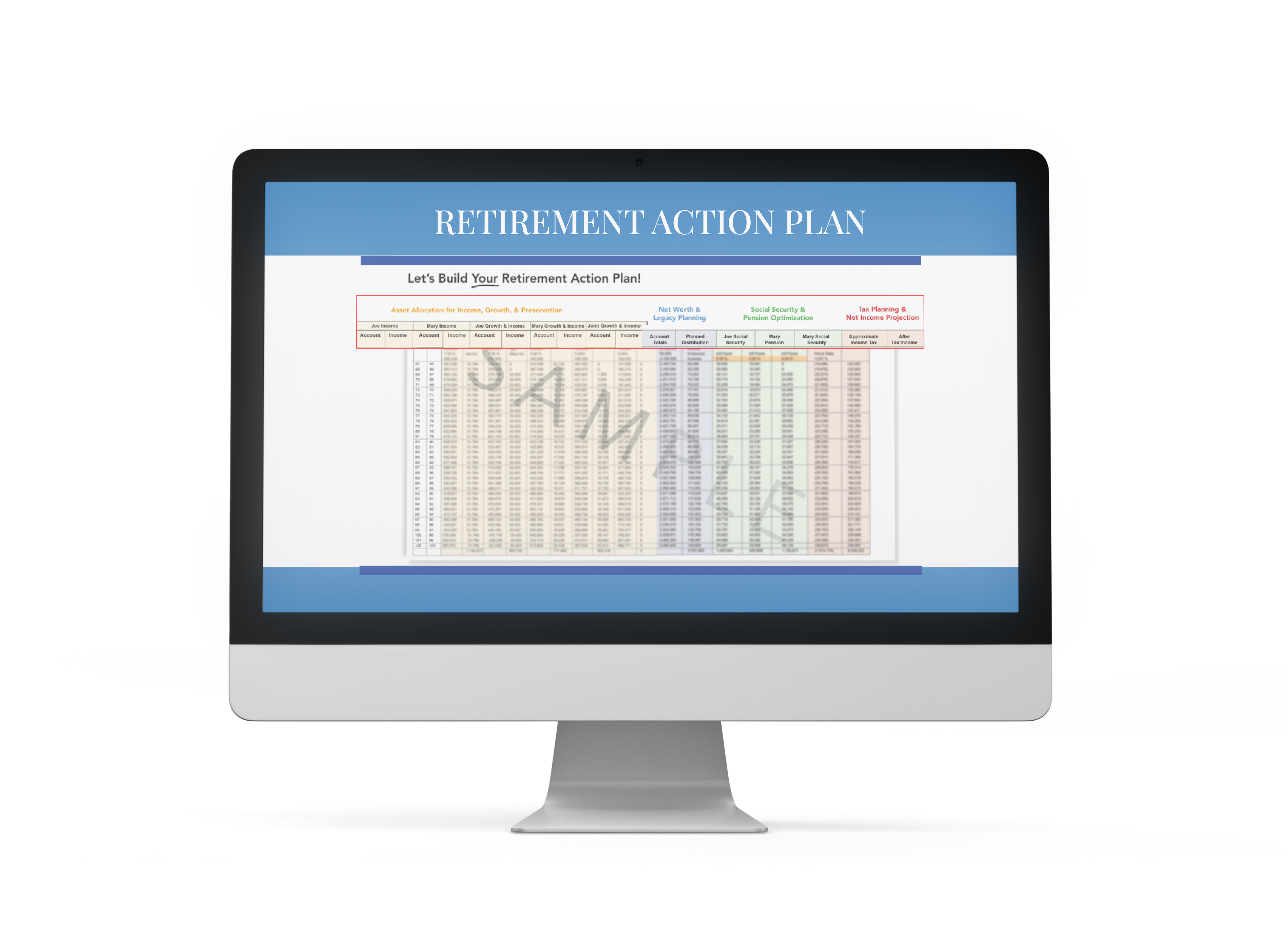our complimentary Process
We specialize in helping our clients design and implement their very own retirement compensation plan. That’s right! YOU are the BOSS. First, we’ll talk monthly salary – as always, you’ll want a robust, recurring income. Next, we’ll discuss your bonus opportunity, liquid cash availability and, of course, a savvy tax strategy throughout. Lastly, we have a dedicated Legacy Planner who will help you understand the costs/benefits of a Long Term Care strategy to help protect and provide for you in your golden years. By the time your plan is ready to implement, you’ll be more confident and more excited than ever to make your retirement dreams a reality.
Monthly Salary
You needed one during your career. You still need one in retirement – just from a different source. In designing your retirement paystub, we first analyze household Social Security benefits and, if applicable, corporate or government pension benefits. Once we’ve determined your timeline for electing these benefits, we’ll carefully select top-rated annuities that will provide any additional income you need to insure that 100% of your retirement salary is secured by guaranteed sources. Whatever is left over, we will invest for your Bonus Opportunity!
Bonus Opportunity
The ideal counterpart to a comfortable salary is a shot at doing even better! Once your retirement salary is secured, our focus for the rest of your retirement savings is GROWTH and LIQUIDITY. Our approach to investing utilizes a blend of active and passive wealth management strategies to insure that you have the growth potential you want while maintaining access to the money you need.
Tax-Savvy Plan
Don’t you just love finding ways to increase your take-home pay? So do we! Every day we are helping our clients minimize their tax payments and carefully consider tax-mitigating strategies like ROTH IRA conversions, Charitable Remainder Trusts, Tax Free Life Insurance and more. Your retirement design is not complete without an annual effective tax rate analysis – something we provide standard with each plan.

Darren Petty
Founder & president, CFP ®, RICP ®
Serving as President of Retirement Architects, Darren’s passion is helping people retire happy. To help our clients live life to the fullest, Darren and his team design balanced retirement portfolio that generate reliable income, growth opportunity and tax efficiency. In keeping current with today’s retirement needs, Darren has earned the designations of Certified Financial Planner (CFP®) and Retirement Income Certified Professional (RICP®). He also holds a Colorado life insurance license and is an investment advisor with Tucker Asset Management.
What Others are Saying
As Featured On


let’s design your retirement plan
At Retirement Architects, we understand that every individual has unique financial goals and circumstances. That’s why we pride ourselves on designing customized plans tailored to each client’s specific needs, risk tolerance, and aspirations. Our expert team collaborates closely with you to design a retirement strategy that ensures financial security while making the process clear and straightforward. Let us guide you on the path to a comfortable retirement with a plan that’s as unique as you are.
weekly market updates

Some Q&A to help you Get to know Us…
What do I need to bring to my first appointment?
No stress here, also no cost. Bring your financial summary and your questions and concerns and let us prove our worth. Within a few business days, we will address your concerns and answer your questions with a customized retirement design completely unique to YOUR needs. In our next meeting we will then review your design to further educate you on the key financial topics and strategies. Once you are happy with the design, we will discuss next steps from there!
What are your account minimums?
If you want to retire and have some savings to work with, we want to help you. Every household needs a retirement plan regardless of account values. That said, if you’ve saved diligently for retirement, it’s going to make this process a lot more fun and useful.
closedtoggle
How often do you meet with clients?
Our clients receive 6 month and annual reviews. We meet as often as needed if there is a life-changing financial event.
How does Retirement Architects get paid?
As we design and implement your plan, we do not charge hourly planning fees. This is so we can spend as much time as needed on education and a great design. Once your plan is to your liking, any funds we use for a carefully-selected annuity or insurance solution will result in the insurance company paying our firm a commission out of their own pocket for this service. 100% of the money you invest will go to work for you. Most of our clients prefer to have us manage their entire portfolio, so those funds that are not invested for producing income become investment accounts that we manage within our wealth management platform to grow your wealth. For these investments, our firm will bill a management fee based on management style and account balance. These fees will be detailed in your plan. We routinely assess our rates to remain competitive and deliver the best value to our clients.
